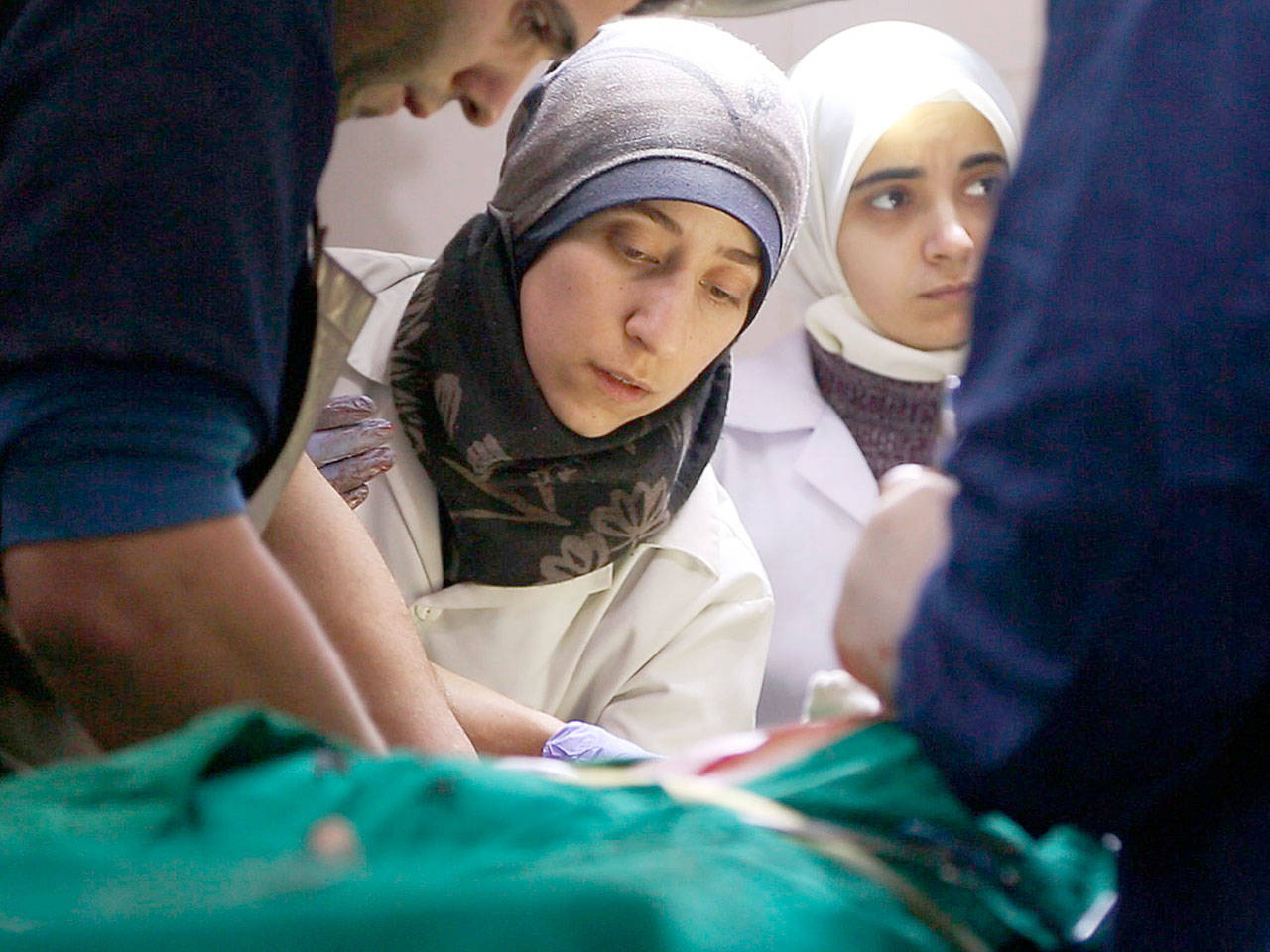Criticize the Oscar nominations all you want, but it’s hard to carp about the documentary category. I’ve seen four of the five nominated pictures, and they are knockouts.
“American Factory” is about a Chinese company imposing its methods on a workplace in Ohio; “The Edge of Democracy” traces recent Brazilian history. And if politics in Brazil sounds alien, rest assured that the film’s portrait of how an ignorant, mean-spirited populist could ascend to the presidency (we’re talking about Jair Bolsonaro) feels very urgent.
There’s also the fascinating “Honeyland,” which made history by becoming the first movie ever nominated in both the documentary and foreign-film categories.
Two nominees come from Syria. I haven’t seen “For Sama” yet, but “The Cave” arrives this week for a regular run. This devastating film looks at medical workers operating in an improvised hospital beneath the streets of a Damascus suburb.
The hospital has been driven into a series of tunnels because regular bombings, courtesy of Syrian President Bashar al-Assad and his Russian allies, have turned the streets into rubble. “The Cave” focuses on a handful of doctors, nurses and staff, especially on Dr. Amani Ballour, a woman physician in a male-dominated country.
Through her eyes, we experience the chaos and heartbreak that unfolds in the tunnels. Scenes of wounded civilians brought down for treatment alternate with quieter moments: a birthday party with popcorn as a special treat, or the kitchen staff worrying about how to feed everyone with a few pounds of rice and some margarine.
Not only does Ballour have to deal with the bloodshed, but periodically someone pops by to tell her that women should stay at home and not be doctors. Even in the midst of war, good old-fashioned sexism thrives.
Syrian director Feras Fayyad previously made the Oscar-nominated “Last Man in Aleppo.” Some of the footage from “The Cave” had to be smuggled out of the country on thumb drives.
The result is almost unbearable to watch. Fayyad, in editing hundreds of hours of material, tends to focus on wounded children. This becomes especially agonizing during a sequence when the doctors suspect that the injured are victims of a chemical attack.
These moments nearly crush the people we’ve been following. Dr. Salim Namour, for instance, is an old-school surgeon who plays Mozart and Tchaikovsky in the operating room (“We don’t have anesthetic, but we have music”). When even his jovial demeanor is shattered by the chemical attack, it’s like seeing the last hope snuffed out.
“The Cave” isn’t perfect; like so many otherwise fine documentaries, it uses far too much music to drum up its drama — as if there wasn’t enough of that already. And it’s possible Fayyad miscalculates how many times a viewer can endure yet another bloody attack.
The brief glimpses above ground are haunting, such as the sight of a man (a restaurant worker? An average citizen?) running through the streets to bring a vat of soup to the hospital. He might as well be carrying a solitary torch of humanity.
By the way, director Fayyad has thus far been denied a visa by the U.S. government to travel to Hollywood for the Oscars, because he is Syrian. So the next time somebody tells you the Oscars shouldn’t be political, tell them to put a sock in it.
“The Cave” (3 stars)
A devastating Oscar-nominated documentary about hospital workers crowded into tunnels beneath the bombed-out streets of a Damascus suburb. Director Feras Fayyad presents an almost unbearable look at the cost of the Syrian civil war, as well as a portrait of a female doctor trying to save lives in a male-dominated society.
Rating: PG-13, for violence, subject matter
Opening Friday: Grand Illusion, Seattle
Talk to us
> Give us your news tips.
> Send us a letter to the editor.
> More Herald contact information.

























